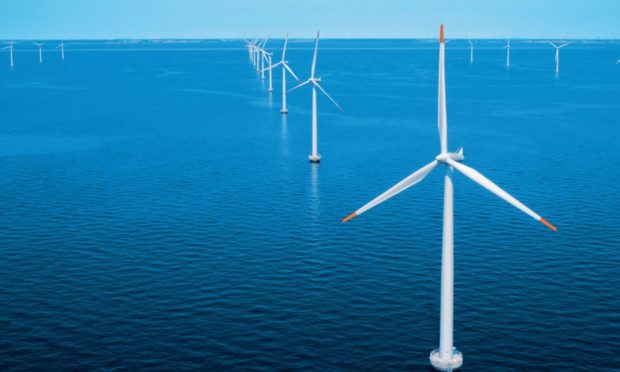Sir, – In response to your correspondent George Herraghty (Wiping out wildlife is abhorrent way to save the planet, Courier, March 11), sadly it is a waste of time objecting to wind turbines.
Tourists and people living near the coast will soon be looking at a horizon filled with them.
Closest to shore the 126, 208 to 290 metre-high turbines of the Neart Na Gaoithe and Inchcape wind farms will, without doubt, kill seabirds.
But they will also ruin the coastal seascapes from Arbroath to Anstruther.
Apart from RSPB Scotland, no one else has tried to stop this.
We have to meet carbon neutral targets and we criticise “dirty countries” like China.
These turbines are made in China and Indonesia using coal, oil and polluting rare metals then shipped to the “clean” UK.
They could have been built 40km offshore, or more, to at least protect our lovely coast.
But the Crown Estate wants as much money as possible from leasing the seabed and the government needs maximum turbines to eventually export electricity for revenue.
So what chance do puffins and kittiwakes have?
Margaret Rogers.
Fifeness,
Crail.
Nationalist way is to lead by distraction
Sir, – I read with not a little amusement Alex Orr’s attempt to deflect from the handling of the Alex Salmond case by the Scottish Government in general, and the first minister in particular (Hole left by Erasmus has not been filled, Courier, March 13).
The nationalist argument has always been that an independent Scotland could do things better than the “corrupt” UK Government.
Yet when the evidence appears to suggest this may not be the case, rather than offer sensible solutions as to how our intertwined system of the civil service, the Crown Office and ministers could be uncoupled, we get the usual “look over there, it’s a squirrel” argument. Let’s remember that it was Nicola Sturgeon who reinstated the Lord Advocate’s attendance at all Cabinet meetings that Mr Salmond had stopped in 2007, and that meetings between the first minister and the head of the civil service pertaining to Mr Salmond remain either unminuted or with notes destroyed.
The question is why? When suggesting that the UK Government has questions to answer for its behaviour in certain areas, perhaps some scrutiny closer to home might not go amiss.
Dr Elizabeth Robertson.
Perth Road,
Dundee.
Weather changes are natural variations
Sir, – It is mid-March and the snowdrops are still blooming in my garden.
I think the first one came out at the start of February.
Contrast that with a mild winter when the little white flowers are first seen in the last week of December.
That this winter has been colder than the last few should remind us that the difference between one year’s weather and another is largely down to natural variation rather than global warming or other climate change.
Otto Inglis.
Ansonhill,
Crossgates.
Prayers for squares were answered
Sir, – Congratulations are due to the army of knitters and their friends in Montrose and beyond who produced a multitude of prayer squares to mark the recent World Day of Prayer, an annual, international and inter-church event.
As it was not possible to hold the usual services in sheltered housing complexes or care homes, the local committee appealed for help to make up individual packs for residents so that they could feel included and know they were not forgotten.
The response to appeals for prayer squares to put in each pack, along with a copy of the service, was magnificent.
Any squares not needed locally will be sent to the Scottish committee appeal for delegates to next year’s international meeting in Edinburgh.
Elizabeth Anderson.
Secretary,
Montrose World Day of Prayer Committee.










